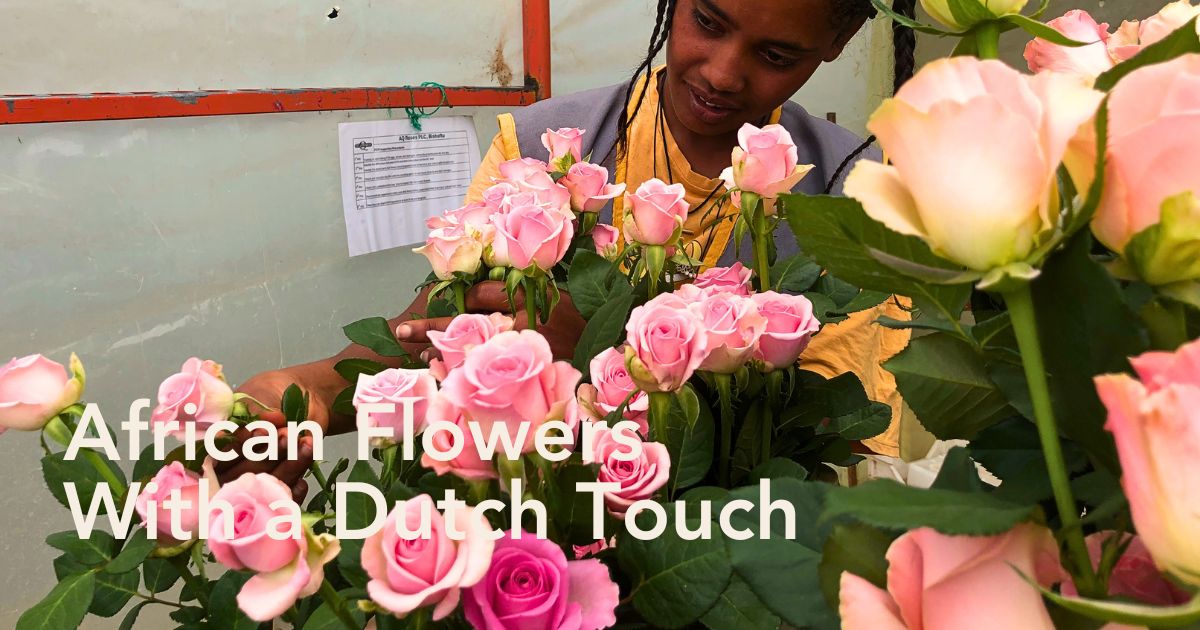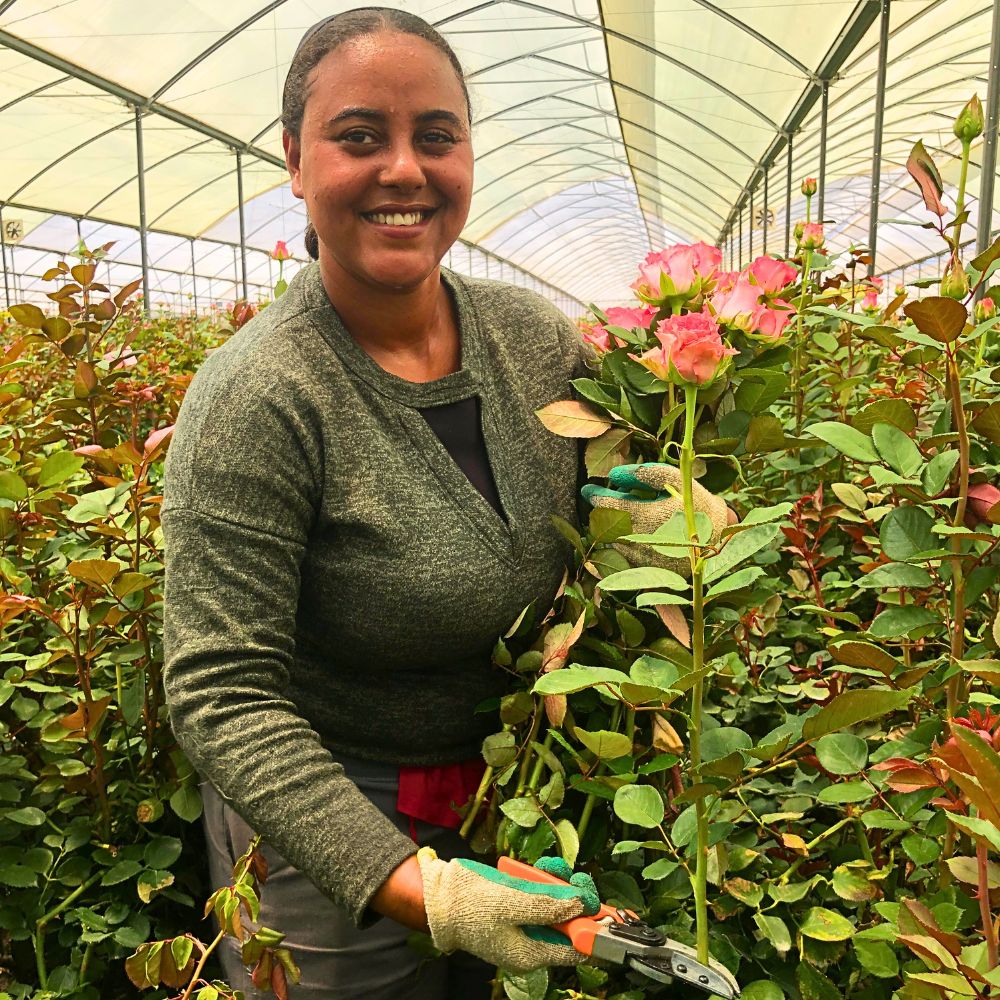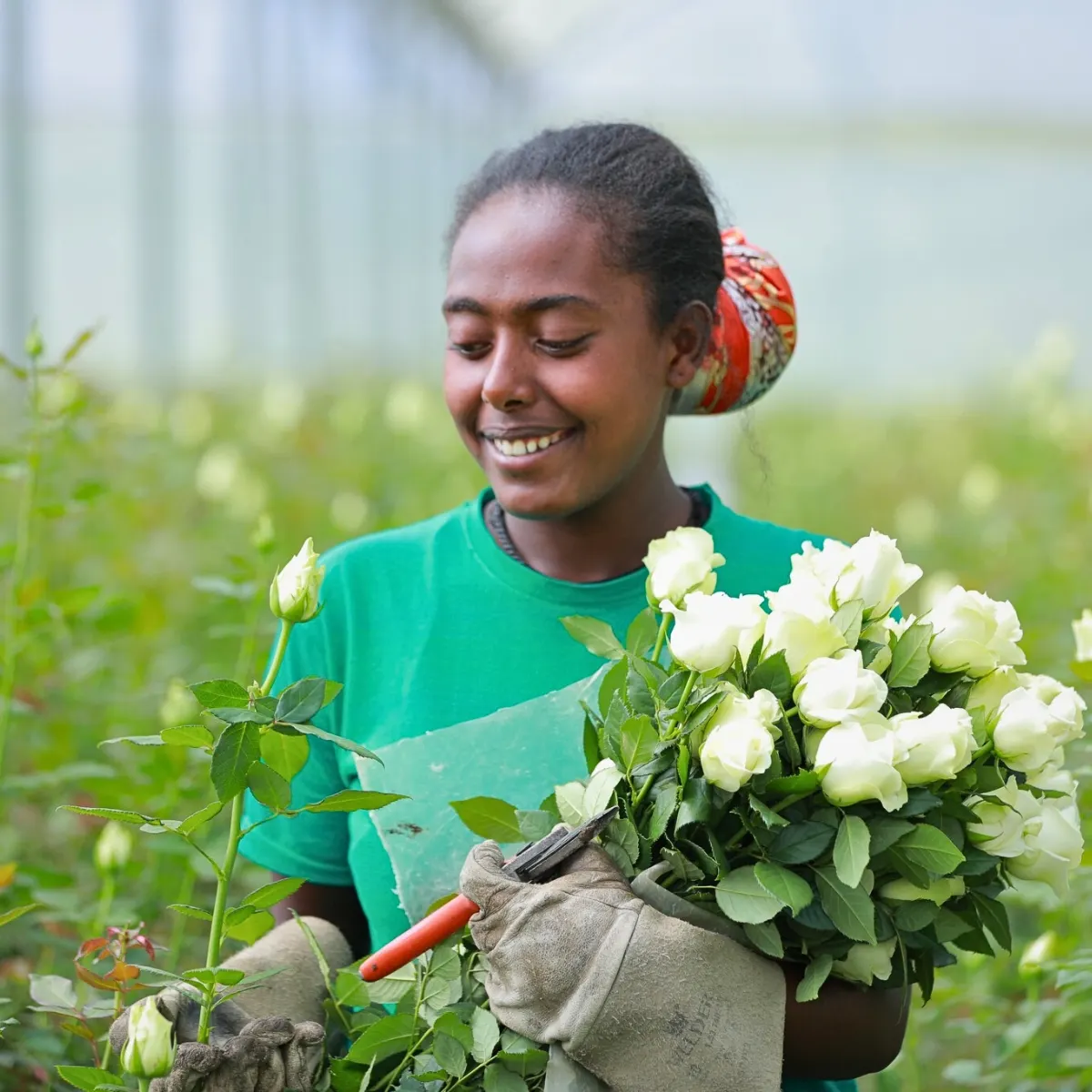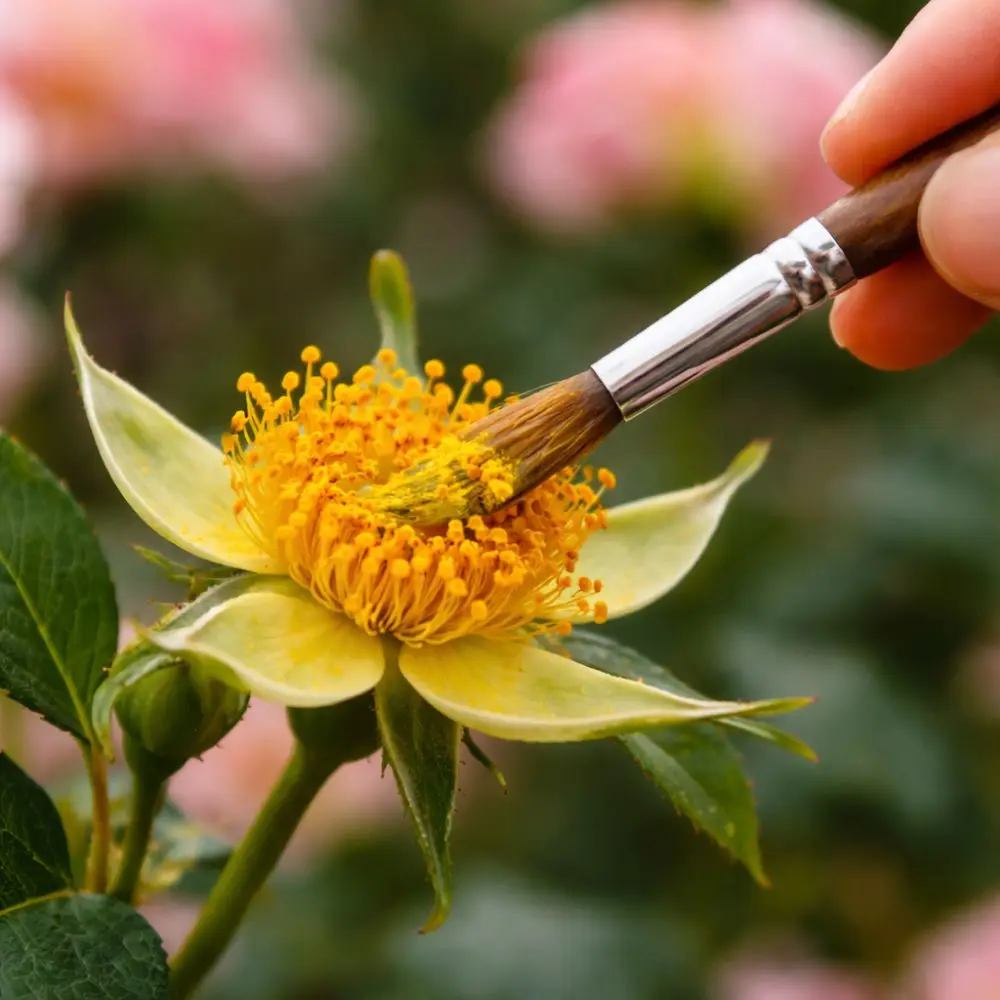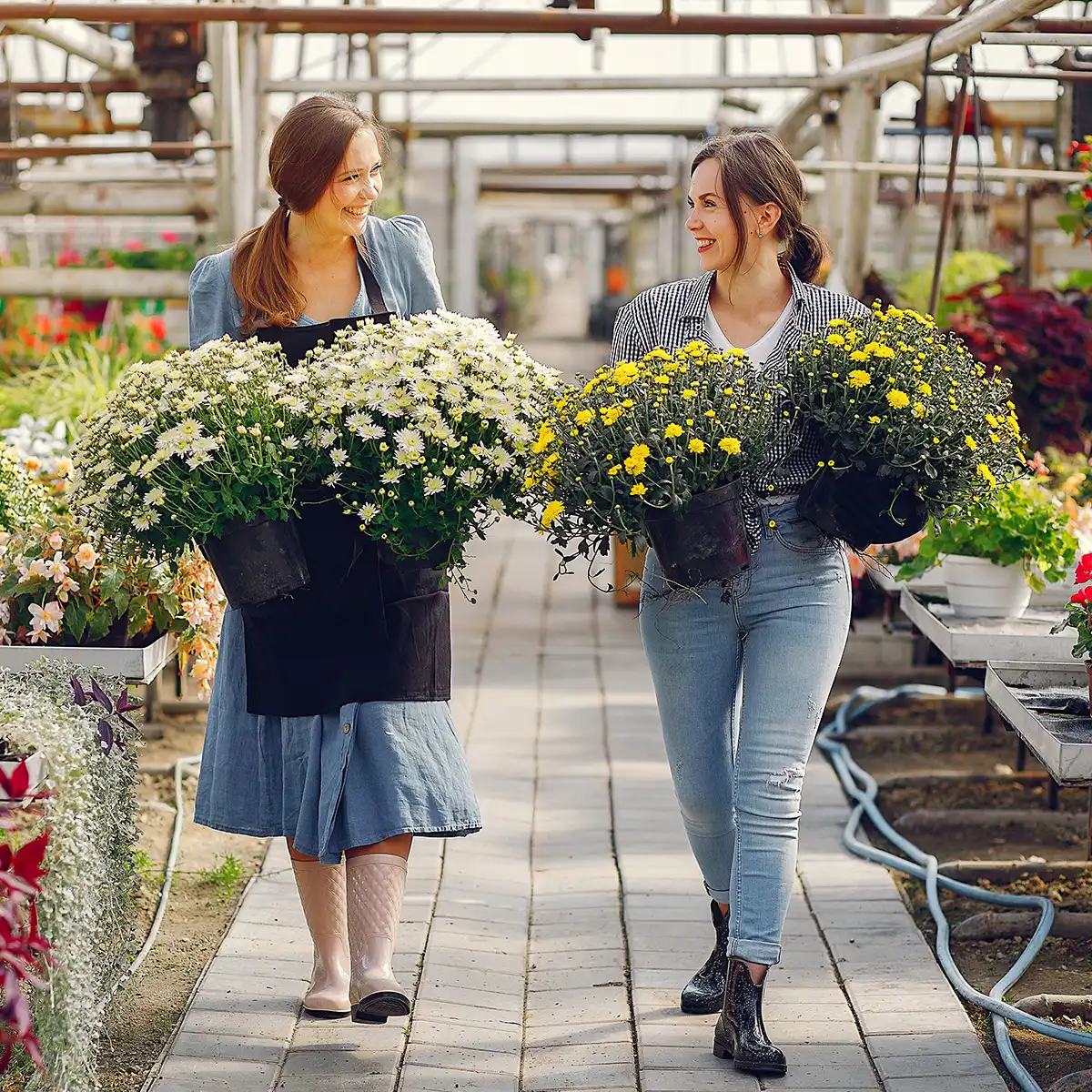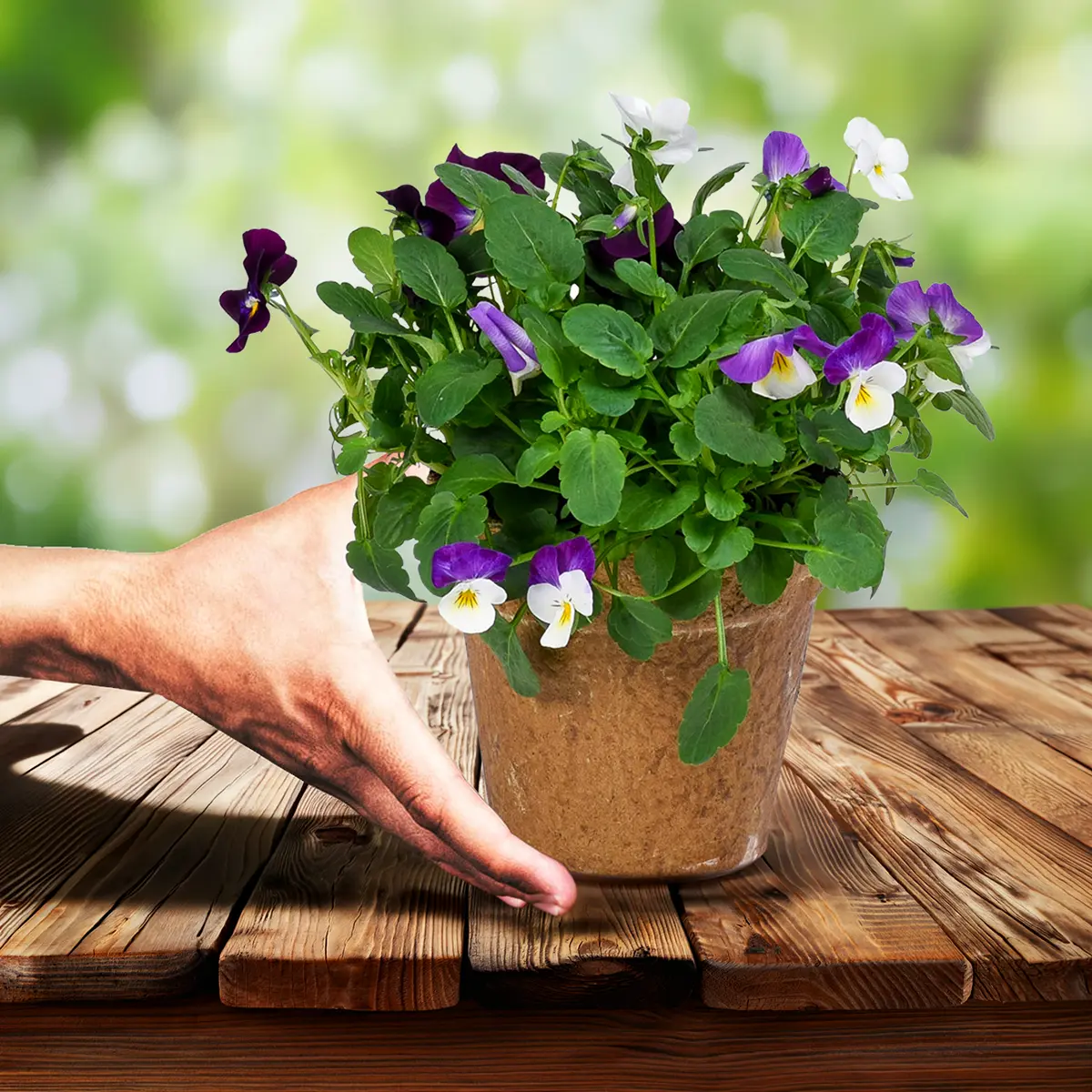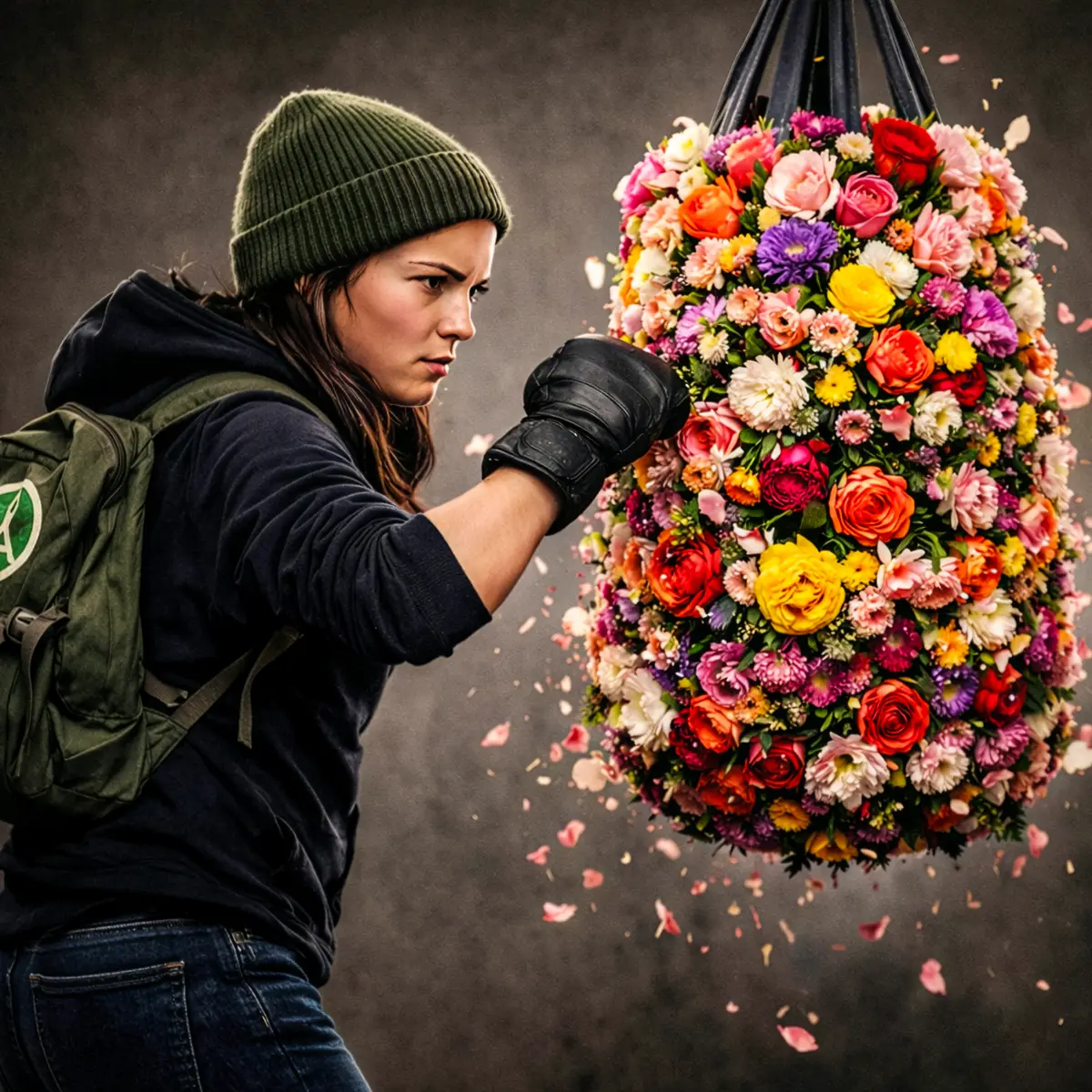Established by the Ammerlaan family in 2006, AQ Roses (an acronym for Ammerlaan Quality Roses) is a premier rose-growing enterprise that has evolved into one of Ethiopia's leading flower producers, spanning two distinct locations with a total area of over 50 hectares. From the shores of Lake Ziway to the high plateau of Bishoftu (formerly known as Debre Zeit), a town located in central Ethiopia’s Oromia region, AQ Roses takes advantage of the ideal growing conditions to produce roses of exceptional quality, distinguished by some of the most beautiful colors and impressive bud sizes preferred by flower markets in Europe and around the world.
AQ Roses, whose flowers are sold under the Rosa Plaza BV label, has its production processes showcasing not just horticultural expertise but also a commitment to environmental management and social responsibility. These have become the hallmark of their business philosophy, making AQ Roses a name synonymous with premium cut roses. It is also a perfect demonstration of the outcome of Dutch innovation and a floral tradition that spans years, blending with the ideal conditions for floriculture. But what is it about AQ Roses that makes the grower tick all the boxes? Definitely, there is so much to know about this grower.
A Legacy Grounded in Dutch Floral Heritage
The Ammerlaan family’s floricultural heritage began in 1975 when Wim Ammerlaan Sr. and his brother Emiel established a modest rose nursery in Rijsenhout, Netherlands. Initially specializing in small-flowered varieties, their operations grew well. However, by the late 1990s, rising costs and global competition slowed Dutch rose cultivation somewhat for them. This challenge became an opportunity when Wim’s sons, Frank and Wim Jr., joined the business after studying business administration and plant science, respectively. Their vision? To relocate production to a region where nature itself could enhance their flower cultivation. Ethiopia presented the ideal location.
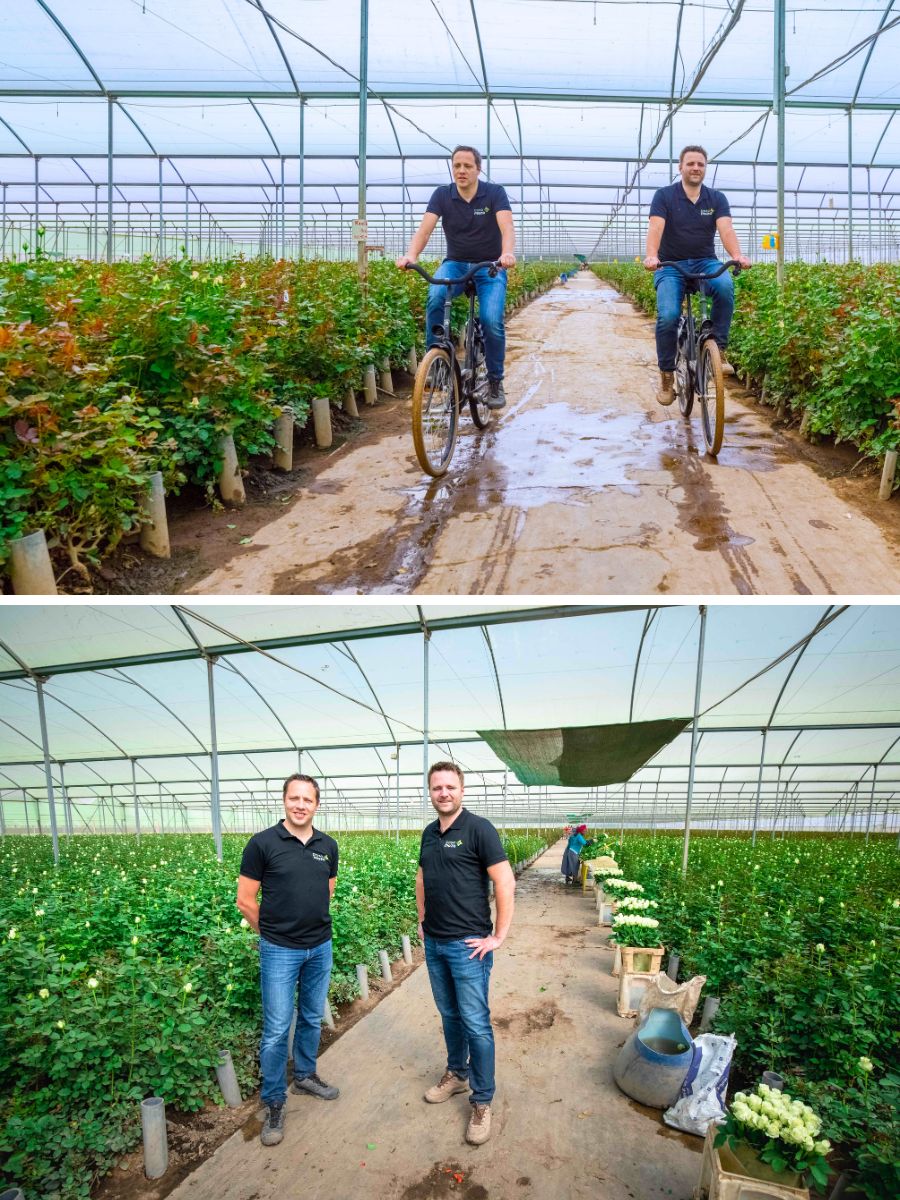
The story of AQ Roses began in earnest in 2006 when the brothers Frank and Wim Ammerlaan, supported by their parents, made the audacious decision to transition their family's rose-growing business from the Netherlands to Ethiopia. Coming from a strong Dutch horticultural tradition, the Ammerlaan family brought generations of flower-growing expertise to a new continent. Wim Ammerlaan, equipped with a Master's degree in Plant Sciences from Wageningen University, joined his brother Frank in this ambitious venture. They saw great potential in Ethiopia's natural growing conditions and the country’s fast-growing flower industry.
According to Jan Bas van Veelen, AQ Roses Ethiopia Country Manager, the duo first established operations on 18 hectares at the Sher Ethiopia Complex in Ziway (also known as Batu)—a town situated 1,650 meters above sea level—approximately 162 kilometers south of Addis Ababa. The move was tactical: Ethiopia’s high-altitude climate, with its cool nights and abundant sunlight, proved ideal for growing roses with larger buds and lively hues, qualities somewhat challenging to achieve in the Netherlands. This strategic location was an excellent springboard for the Ammerlaans to establish their presence in Ethiopia's emerging flower sector. By 2008, their Ziway nursery had expanded to 38 hectares. In the early years, the two alternated between Ethiopia and the Netherlands, with Frank eventually spending longer periods in Ethiopia while Wim concentrated on operations in the Netherlands.
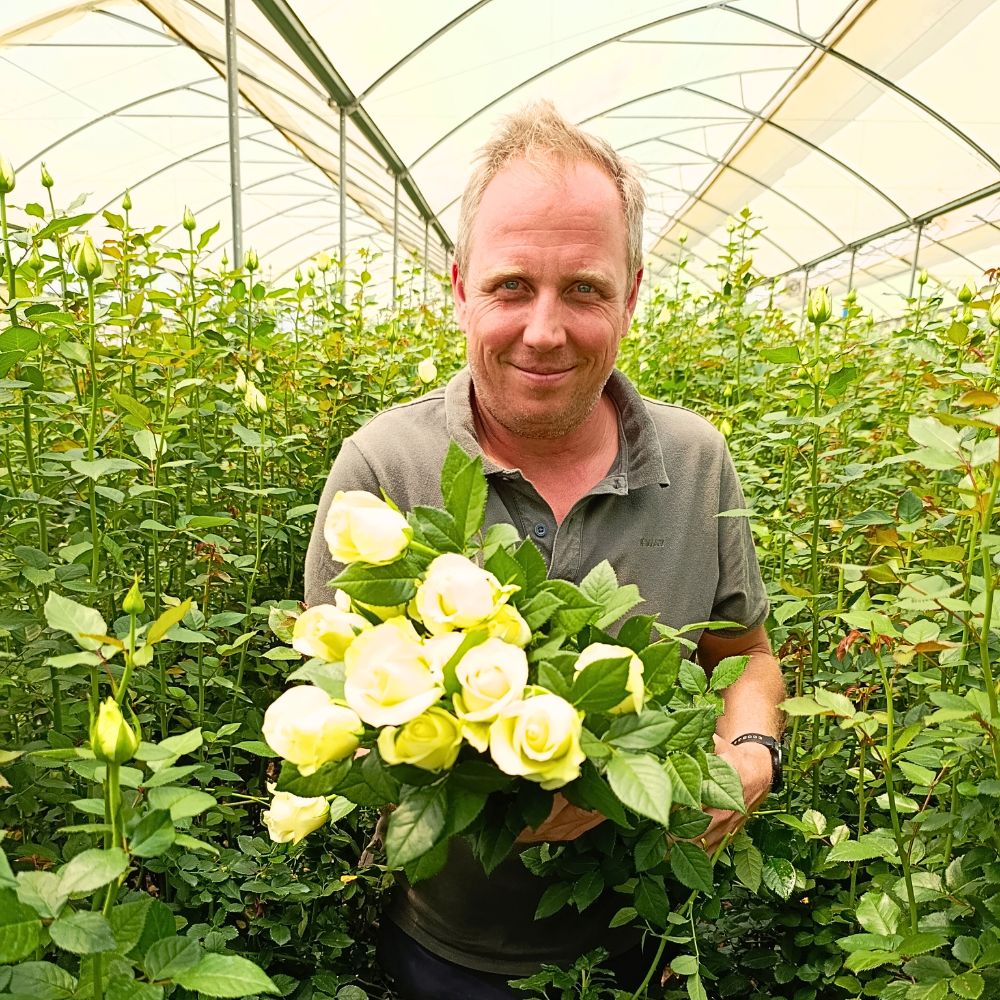
Eventually, it all paid off as the flower company steadily expanded its capacity, investing in its production processes, and hence its reputation for quality roses. The most significant expansion occurred when AQ Roses acquired a second site in Debre Zeit (Bishoftu) in 2022, previously owned by breeder Dümmen Orange, adding about 12 hectares of production area at a higher altitude of 1,900 meters. According to Dirk Looij, AQ Roses’ Senior Production Manager, the acquisition allowed the grower to diversify its portfolio by taking advantage of different growing conditions while also taking over some of Dümmen Orange’s assortments, solidifying AQ Roses' presence as a reliable grower capable of meeting various market segments.
AQ Roses/Rosa Plaza:
"This decision (to venture into Ethiopia) allowed us to grow premium roses under optimal conditions, continuing our family legacy in floriculture. Today, we produce 100 million roses annually, combining traditional expertise with sustainable innovation. Rosa Plaza isn’t just about roses; it’s about roots, family, and passion."
Cultivating Flowers in Two Distinct Ecosystems
AQ Roses, which employs over 1,500 people across its two locations in Ethiopia, has mastered the art of cultivating flowers that please both florists and different consumer segments. With more than 100 million stems sold annually under the Rosa Plaza brand, their enterprise embodies a remarkable blend of Dutch horticultural expertise and Ethiopia's natural advantages, including high altitude, favorable climate, and plentiful sunshine.
The grower’s production occurs in two distinctly different yet equally suitable locations in Ethiopia, both offering unique geographical advantages for flower cultivation. The original farm in Ziway is located at an elevation of 1,650 meters above sea level, nestled along the shores of Lake Ziway in Ethiopia's Rift Valley, an area that provides ideal conditions for growing a wide range of intermediate and large-flowered roses. The climate in Ziway enables year-round production without the need for artificial heating or supplemental lighting. This significantly reduces energy costs while ensuring consistent quality throughout the seasons. The proximity to Lake Ziway also creates a stunning backdrop for the farm, emphasizing the grower’s environmental responsibility as they implement comprehensive measures to ensure their operations do not adversely affect this natural resource.
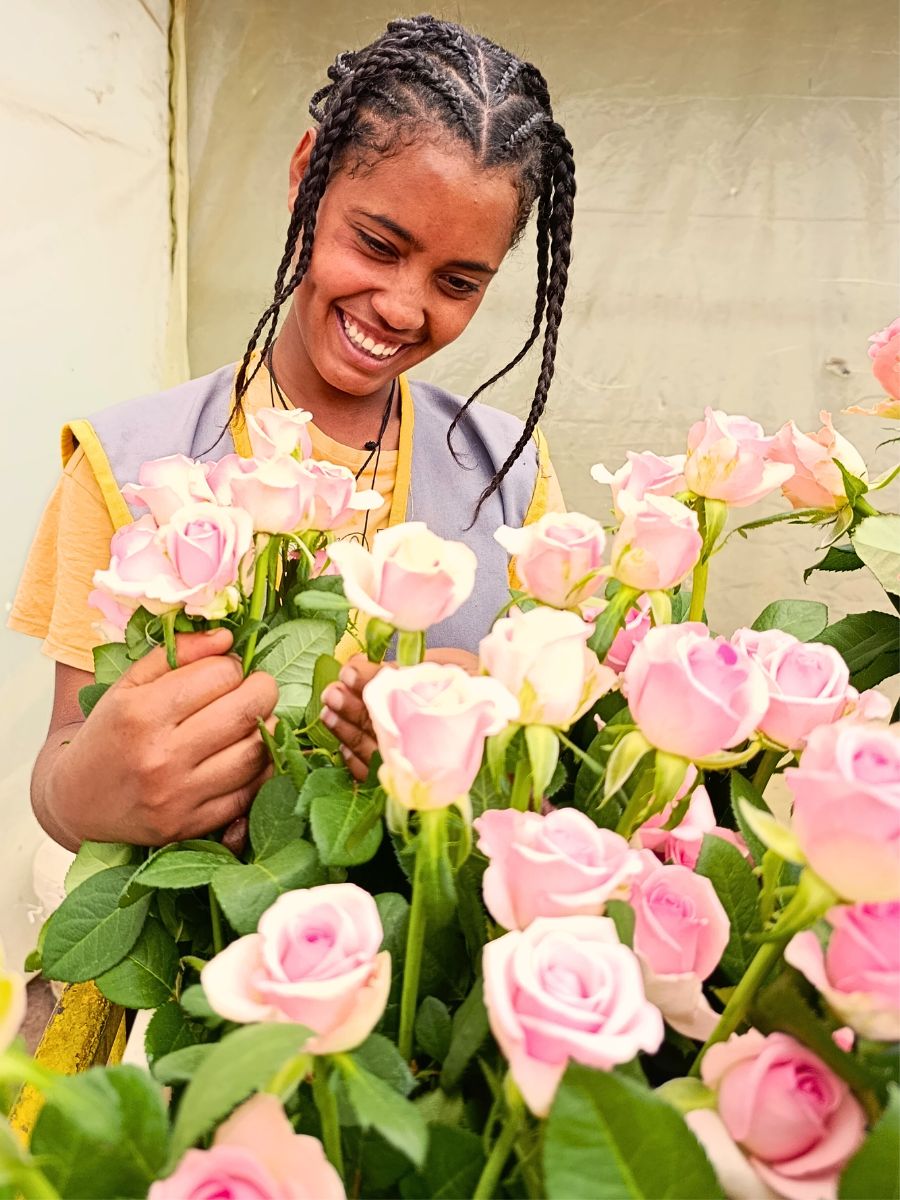
The newer 12-hectare facility in Debre Zeit offers various advantages to AQ Roses' production portfolio. Located at 1,900 meters above sea level on Ethiopia's high plateau, this site is surrounded by extraordinary crater lakes and serves as a cultural heartland for the region, primarily known for hosting the important Irreecha festival. The higher altitude creates cooler temperatures and intense sunlight, ideal for cultivating premium large-headed roses with bud sizes of at least five centimeters. These favorable growing conditions enable AQ Roses to produce flowers specifically aimed at the higher end of the market—roses recognized for their exceptional size, vibrant colors, and outstanding vase life. Operating farms at different altitudes ensures that AQ Roses strategically positions itself to offer a diverse range of varieties that cater to various market segments and needs, from supermarket supply chains to exclusive florists seeking premium flowers.
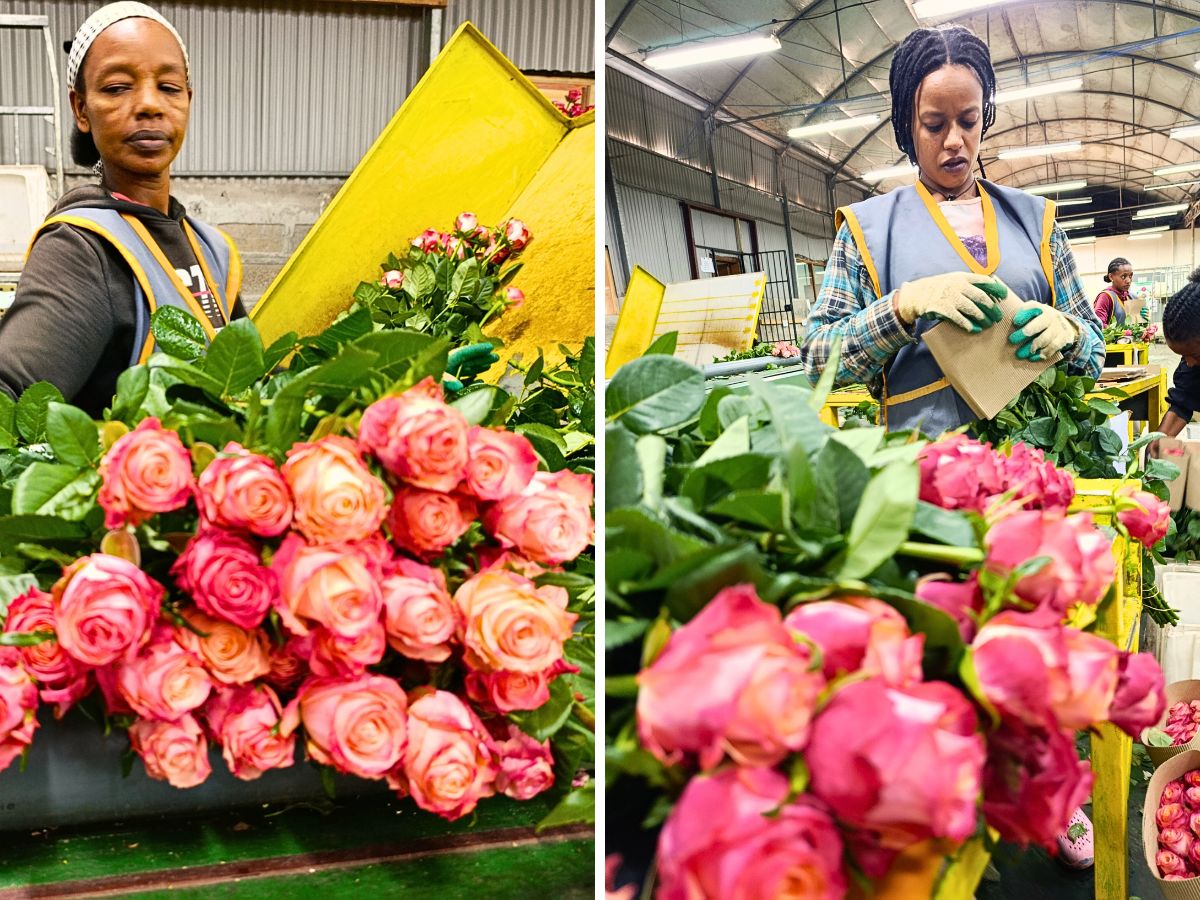
The grower’s portfolio now incorporates signature roses, including timeless classics like Rose Monte Carlo, which is perhaps the most beautiful red rose around, as well as Rose Monique (from breeder Kordes Rosen and named after Frank and Wim’s sister). Others include Rose Athena, Rose Magic Avalanche+, Rose Noelle!, Rose Snowstorm, Rose Lovely Jewel, Rose Samantha's Bridal, Rose Moonwalk, Rose Tacazzi+, and the two-toned Rose Mai Tai, among many others. Each variety is unique in its own way and goes through rigorous testing—new cultivars are grown for a full year to ensure they thrive under Ethiopia’s variable weather, guaranteeing consistent quality.
Jan Bas and Dirk:
“We sought to have a whole palette of varieties rather than focus on a few specialties the way other growers do. AQ Roses, essentially, positions itself a bit higher in the market. The roses speak for themselves!”
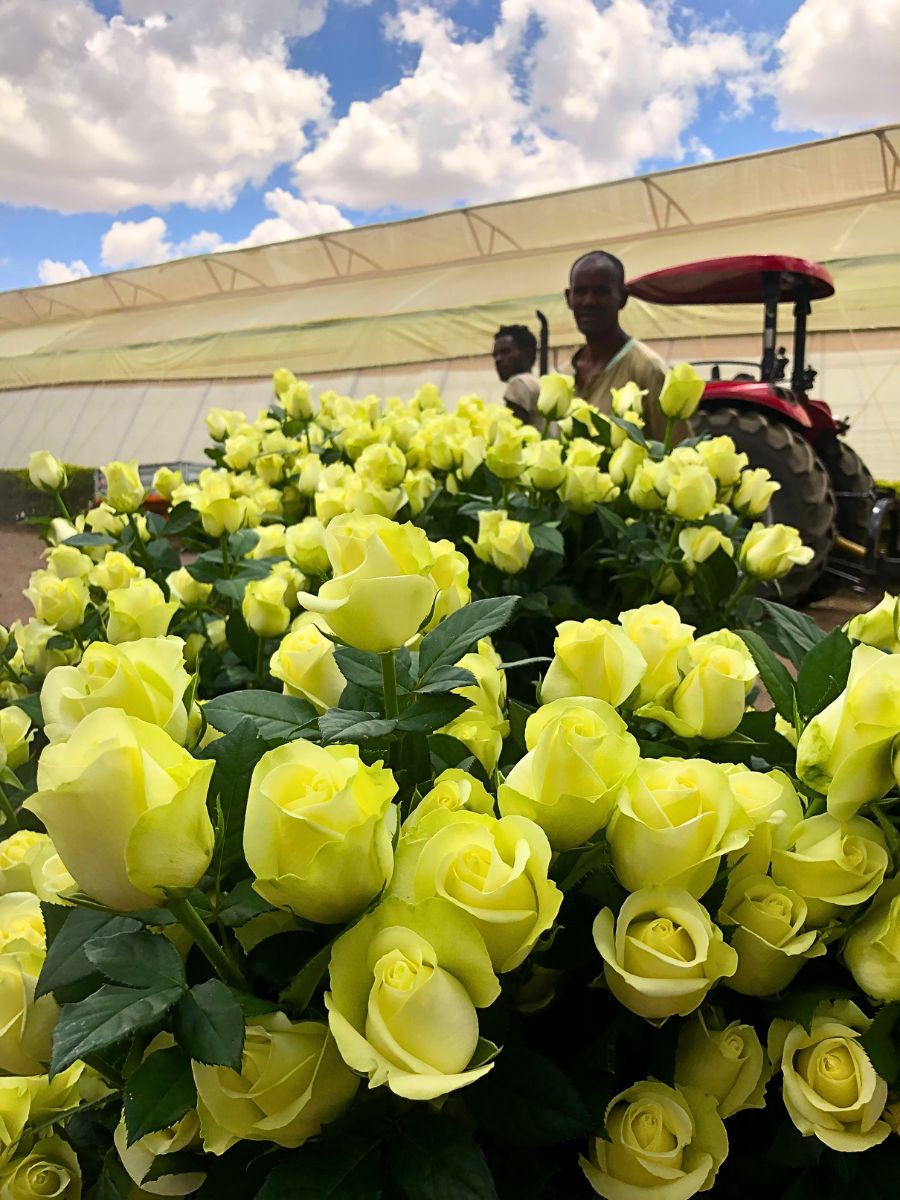
In 2023, the grower began incorporating Alstroemeria into their repertoire. Also cultivated on the Debre Zeit highlands farm, these flowers thrive in the same optimal conditions that support their roses. After testing various varieties, AQ Roses selected ten, including Alstroemeria Mistral, Alstroemeria Limelight, Alstroemeria Hip Hop, Alstroemeria Bali, Alstroemeria Camaro, Alstroemeria Lancaster, and Alstroemeria Hot Pepper, among others. Although still in its pilot phase, this diversification was driven not primarily by market capacity but by a desire to complement their roses, ensuring year-round relevance in a weather-dependent industry. Still, yet, because of the beautiful flowers and excellent vaselife, the Alstroemeria is a good addition to Rosa Plaza's vision of producing beautiful flowers which customers can enjoy having in their vases.
As Jan Bas says:
“Continuity of the flower business is much more important to us than many other factors. That is why we make all the efforts to ensure our sustainability because we intend to be here for the long term. The company still looks to expand the farm’s operations.”
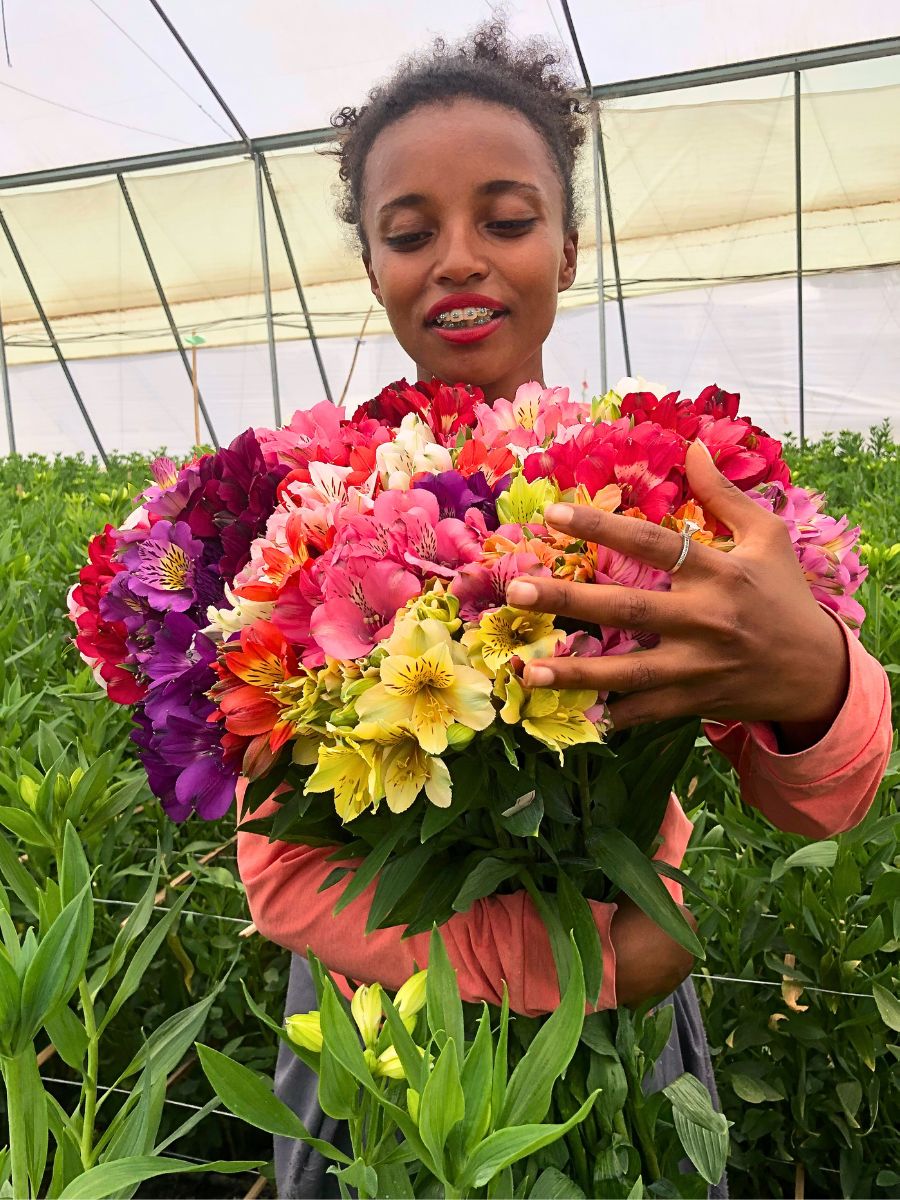
Floriculture Operations Rooted in Sustainability and Social Responsibility
AQ Roses is all about environmentally responsible flower production. The grower implements innovative practices that minimize their ecological footprint while maximizing their floral product quality. Aware of this responsibility, particularly given their proximity to Lake Ziway, the grower has pioneered approaches to reduce chemical usage in an industry often criticized for intensive pesticide application. The grower has successfully replaced 75% of conventional chemical crop protection methods with biological alternatives, with their integrated pest management (IPM) system utilizing natural predators, beneficial fungi, and plant-derived extracts to control pests and diseases while maintaining flower quality.
Water conservation forms another pillar of their environmental commitment. Wastewater from the production process is collected and directed through a state-of-the-art filtration system that purifies the water, making it suitable for reuse in cultivation within a closed-loop approach. This significantly reduces water consumption in a region where responsible water management is crucial. Additionally, AQ Roses has implemented a comprehensive waste management program where all green waste from the flower production processes is composted on-site and reintroduced to their growing areas to enhance soil structure and fertility. They further improve soil health by incorporating natural elements that strengthen the soil ecosystem, creating a foundation for more resilient plants that require fewer interventions.
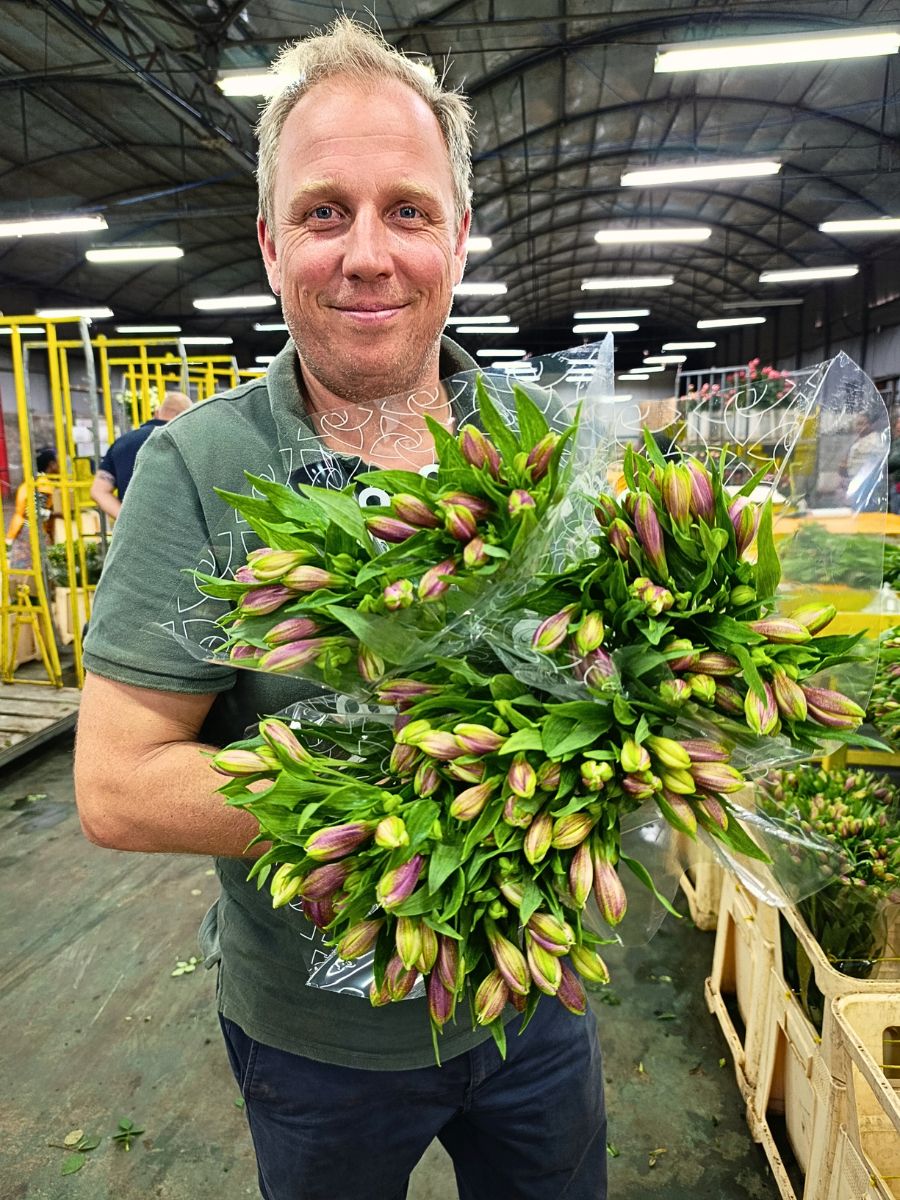
In addition to their environmental considerations, their strategy also embraces a comprehensive approach to social responsibility. The flower company firmly believes that a successful enterprise in developing nations must make meaningful contributions to community well-being, a philosophy evident in their employment practices, where workers are given long-term contracts with competitive salaries complemented by extensive benefits. The grower also offers subsidized meals for employees, inflation-adjusted wages, and opportunities for career advancement. Furthermore, AQ Roses operates its own medical clinic, providing healthcare to employees and significantly enhancing access to quality medical services in a region where such care can be scarce. All of these efforts aim to keep workers satisfied and nurture a positive mindset for work.
The grower also invests in employee development through different training programs and support, enabling workers to advance their skills and career prospects. As a Fairtrade-certified operation, AQ Roses essentially supports the implementation of different community projects. Through these all-inclusive social initiatives, the AQ Roses shows how commercial flower production can be a means for conveying positive social and societal change when guided by principles of fairness and community investment. As a result of these efforts, the grower has achieved certifications, including MPS, FSI, GlobalGAP, Fairtrade, and the Ethiopian Horticulture Producer Exporters Association (EHPEA) Code of Practice Gold certification.
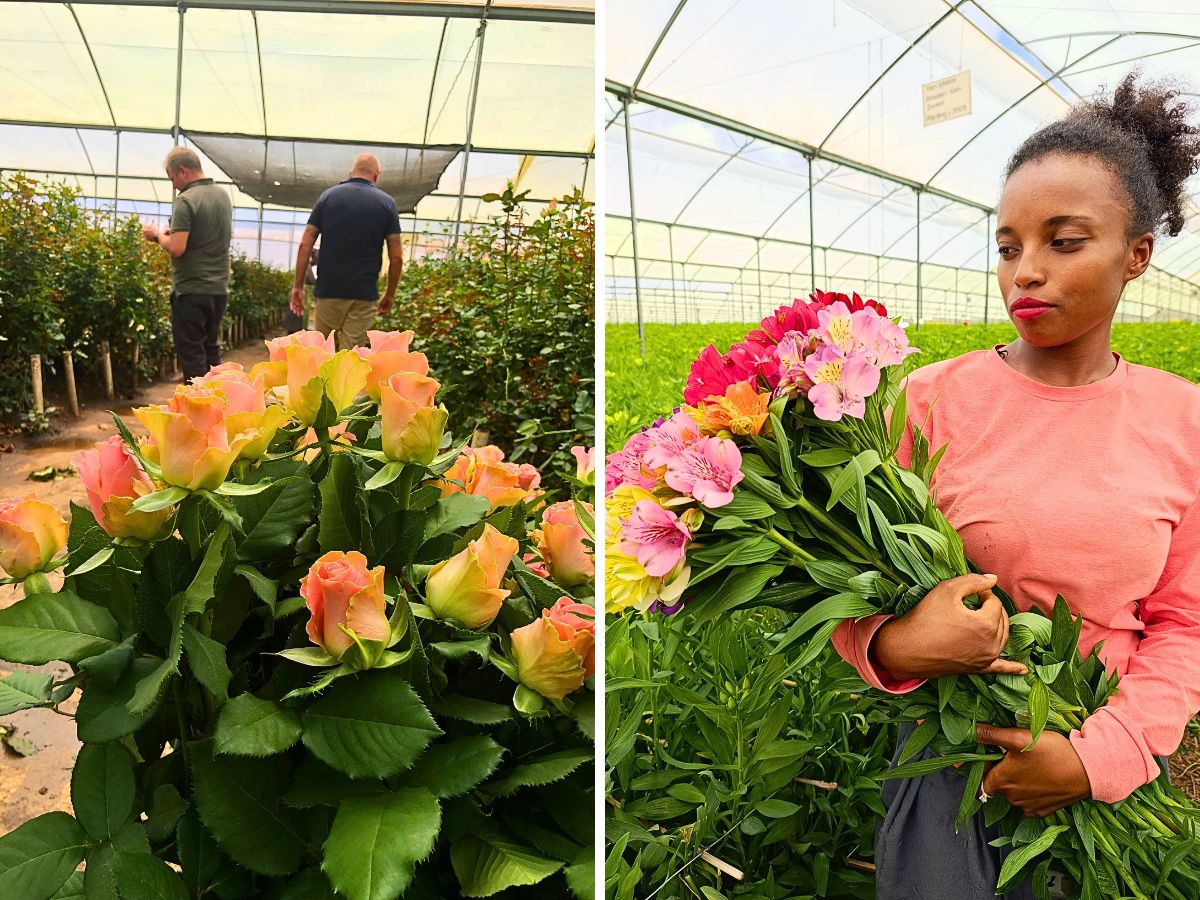
Rosa Plaza, the Brand Behind AQ Roses’ Flowers
Rosa Plaza represents the commercial face of AQ Roses, a brand founded on the pillars of quality, reliability, and craftsmanship. Each flower stem is harvested at its optimal stage, carefully treated to ensure a vase life of 12 to 14 days, and shipped daily to Aalsmeer, Netherlands, for processing within a seamless supply chain—spanning from Ethiopian greenhouses to European florists—that exemplifies the ‘Dutch touch’ in their slogan, African Flowers with a Dutch Touch.
The brand’s success pivots on its dual identity: Ethiopian-grown flowers managed with Dutch precision. The Dutch team collaborates with local teams, blending advanced systems and technologies with traditional knowledge to enhance productivity while also building skill transfer. This empowers the Ethiopian staff to adopt sustainable flower production practices.
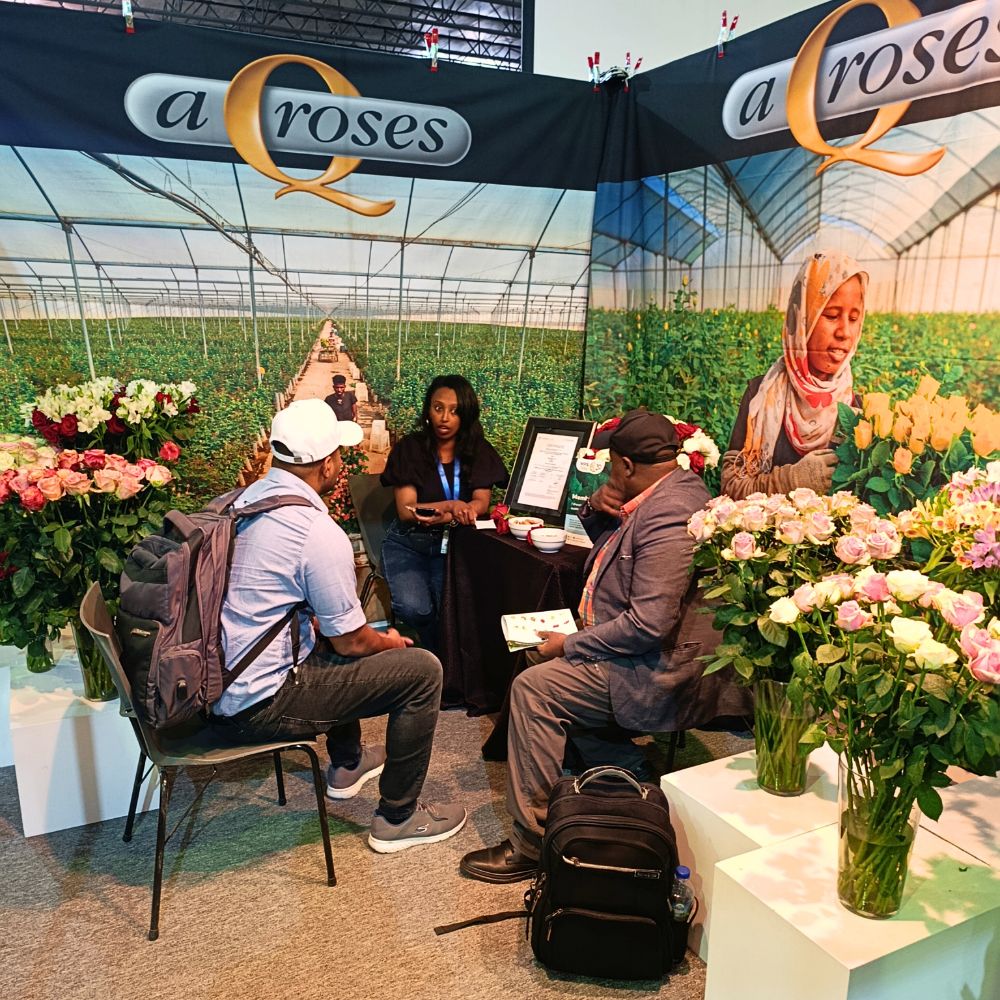
The Rosa Plaza brand has consequently become synonymous with quality in the European flower market, leveraging Ethiopia's ideal growing conditions alongside Dutch flower expertise and marketing knowledge. This business model, which bridges two continents, creates economic opportunities in Ethiopia while satisfying the discerning European consumer market for beautiful, sustainable flowers.

